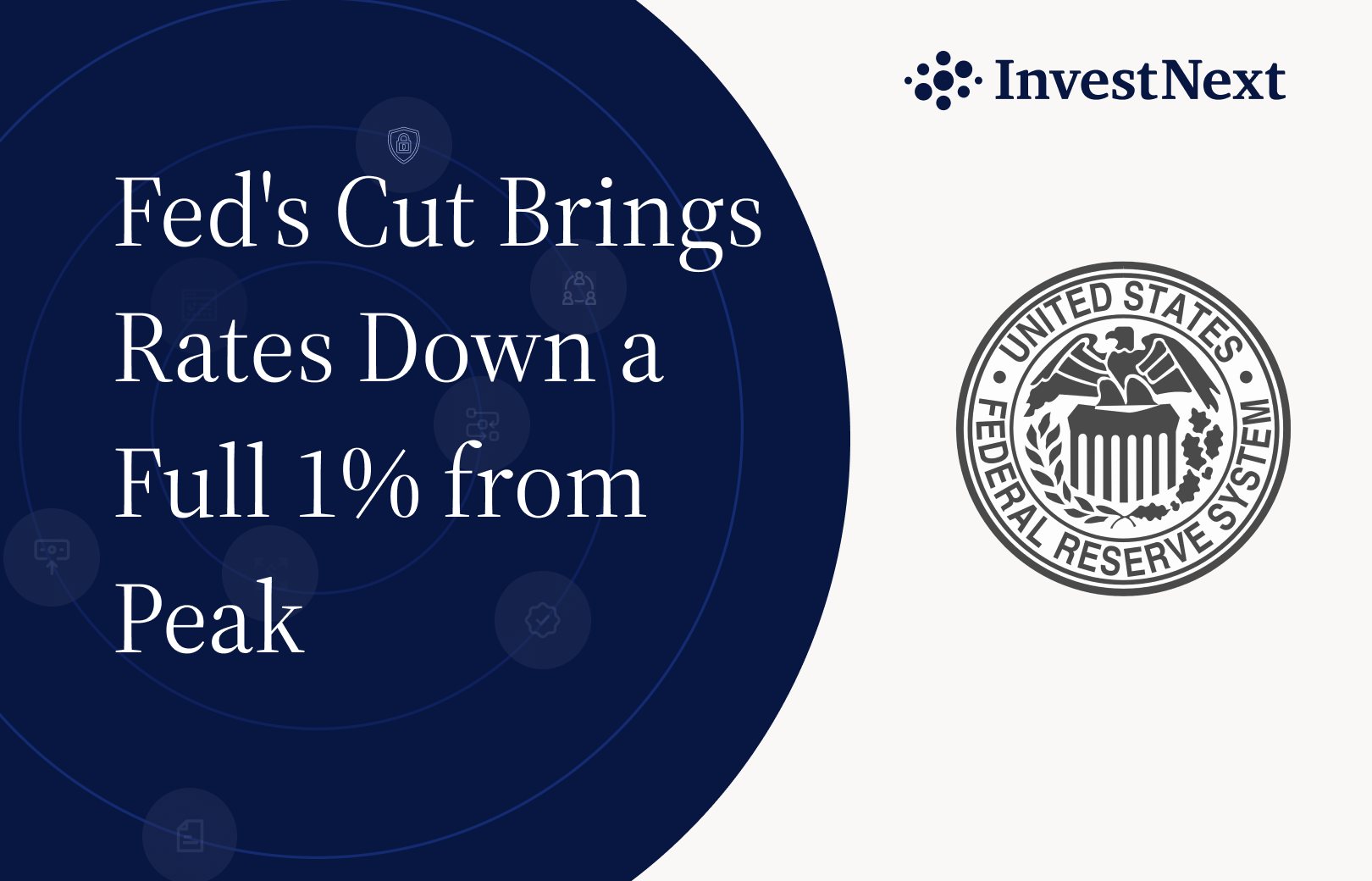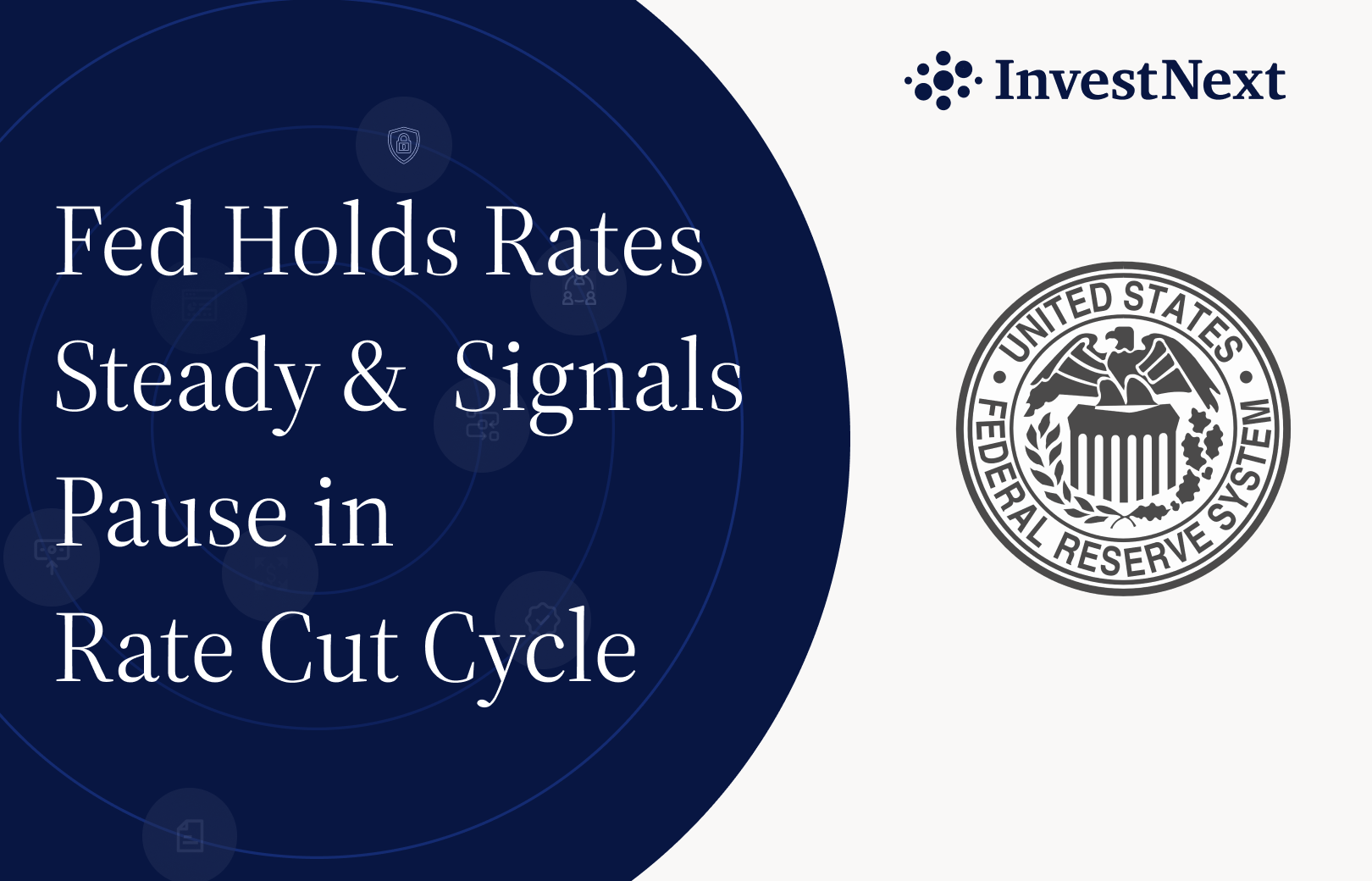The Federal Reserve trimmed rates by another quarter point today, bringing the target range to 4.25-4.5%. This marks the third consecutive rate cut of 2024, following September’s historic 50 basis point reduction, and signals a decisive shift in monetary policy after nearly four years of restrictive rates.
“The economy is strong overall and has made significant progress toward our goals over the past two years,” Fed Chair Powell stated in his press conference. The Fed’s latest projections show GDP growing at 2.8% in Q3, with unemployment holding at 4.2%.
Policy Shift Reflects Economic Strength
The Fed’s pivot in 2024 marks a dramatic evolution in monetary policy:
- August 2: Fed holds rates steady at 5.25-5.5%, with Powell first hinting at potential cuts
- August 27: Powell’s Jackson Hole speech signals policy shift, declaring “the time has come for policy to adjust”
- September 18: First action with dramatic 50 basis point cut, bringing target range to 4.75-5%
- November 7: Fed continues easing with quarter-point reduction, citing labor market stability
- December 18: Today’s quarter-point cut brings total reduction to a full percentage point from peak rates
“With today’s action, we have lowered our policy rate by a full percentage point from its peak, and our policy stance is now significantly less restrictive,”
This transition suggests a careful balance between supporting economic growth and maintaining inflation control.
Mixed Market Response
Despite the rate cut aligning with expectations, markets showed mixed reactions. According to Investor’s Business Daily, the S&P 500 fell 1.3% during Powell’s press conference, while the 10-year Treasury yield approached recent highs at 4.49%.
Current Rate Environment
The impact of Fed policy changes has varied across different types of financing:
- Mortgage rates remain elevated at 7.09%, up from 6.12% in September
- HELOC rates have dropped to 8.70% from 9.25%
- Credit card rates show modest decline to 20.50%

Real Estate Impact
This rate reduction comes at a critical time for commercial real estate markets. According to CRE Daily, loan modifications continue to climb, especially at smaller banks, as the time for “extend-and-pretend” strategies runs short. The median percentage of CRE loan modifications rose 65 basis points through the first nine months of 2024.
Our initial analysis in August highlighted the approaching $929 billion commercial real estate debt maturity wave, with distressed assets reaching $94.2 billion.
While today’s rate cut offers some relief, challenges remain, particularly in the office sector where delinquency rates have tripled since early 2023.
Looking Ahead
The Fed’s projections suggest two more rate cuts in 2025, potentially bringing rates below 4%. However, Powell cautioned against expecting a quick return to ultra-low rates, noting that “from here, it’s a new phase, and we’re going to be cautious about further cuts.”
For real estate investors, this environment signals both challenges and opportunities. Private equity and credit funds are increasingly stepping in as alternative capital sources, though with higher return demands and stricter terms.
While lower rates may ease refinancing pressures, the market reset anticipated in 2025 could still expose sellers to significant price corrections as the era of “extend-and-pretend” approaches its limits.
The Mortgage Bankers Association projects rates could approach 6% over the next year, potentially catalyzing increased market activity.
However, Powell emphasized that policy adjustments will remain data-dependent, with the Fed prepared to adjust course based on evolving economic conditions.








